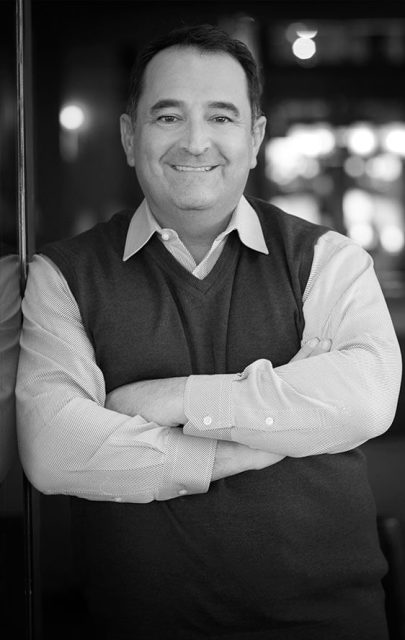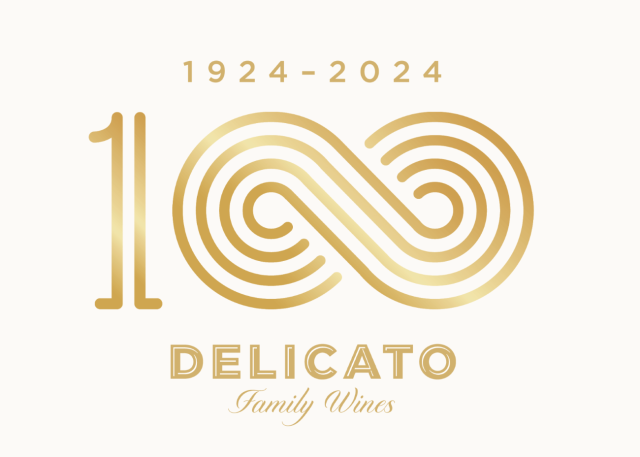This website uses cookies so that we can provide you with the best user experience possible. Cookie information is stored in your browser and performs functions such as recognising you when you return to our website and helping our team to understand which sections of the website you find most interesting and useful.
Turnaround predicted for wine sales in the US in 2024
At ProWein this week, Chris Indelicato, president of North America’s 16-million case Delicato Family Wines, told db when he expects wine sales to pick up in the US, and why he has a positive outlook.

It was during a discussion with the head of America’s fifth largest wine company that db learnt of one major player’s outlook for the next couple of years, as well as why he believes that the US market has slowed, where the growth opportunities are, and why he expects structural changes, before stating when he thinks wine consumption will increase once more.
Over the past year, as previously reported by db, wine sales by volume in the US have dropped by around 3%, while turnover has remained flat, and predictions in the latest Silicon Valley Bank wine industry report suggest that early 2024 will see a continued contraction in wine sales.
However, encouragingly for the wine trade, Indelicato is confident that the current decline will end soon, as he told db on Sunday that “there are still opportunities” in the US, before predicting a “turnaround in the middle of 2024” for wine sales in his domestic market, followed by “a slow recovery in 2025”.
The recent and present fall-off in sales volumes he attributed to the decision by US consumers to reduce their wine purchases and instead run-down stock held in their houses, built up during and after the pandemic.
In other words, he said that US drinkers are still consuming wine, but they are relying on their existing supplies.
“There is still some noise in the channel from Covid,” he began, referring initially to stocks in the trade. He then added, “One of the things we think is going on is that the consumer is reducing their pantry, so they are still drinking, but using the stock they amassed during Covid.”
Continuing, he explained, “So the consumer has additional pantry wine as well as the supplier” – a situation he said had been the case during 2008 to 2010, during the “tough economic period” of the Global Financial Crisis.
But Indelicato sees a bright future for wine in the US, in part due to the quality of the most recent vintage.
“2023 was an amazing win, and we will make some amazing wines, which I’m excited about,” he said, noting that the high standard of grapes was universal, from entry-level wines to “the high-end stuff, which is going to be unbelievable,” he stated.
“And what I find is that whenever you have a vintage of that quality, it just sells more, and people drink more: it’s a nice shot in the arm for the industry,” he added.
In terms of some of the perceived threats to a recovery in wine consumption in the US, such as a failure by the wine industry to engage with younger consumers to competition from cannabis, Indelicato was refreshingly unfazed.
“Did young people ever drink wine in their 20s?” he asked, before answering, “They never did, but they will start drinking [wine as they get older].”
As for cannabis, he said, “I think it will cycle; the benefits of cannabis have been oversold, and over time, I don’t think cannabis will overtake alcohol.”
Meanwhile, Delicato Family Vineyards has bucked the industry trend by selling more wine in 2023 than the previous year, which Indelicato attributed a number of factors.
Firstly, he said that the business was in “some very lucrative categories”, such as 3-litre bag-in-box.
He also said that the company had grown its sales significantly in the “better-for-you” wine category, in which Delicato is “number one” in the US, with the sector defined as 7-8% abv wines with low or no sugar to ensure they are low in alcohol and calories.
On top of this, his company is also well represented in resilient parts of the wine category, such as Prosecco and New Zealand Sauvignon Blanc, along with Pinot Grigio, with Indelicato commenting that “floral dry white wines” were doing best, while Chardonnay is “hanging on in there”.
“People who are still drinking, and have tried rtds, are looking for something with less sugar and more sophistication, and are going to whites,” he said.

Looking ahead as his company celebrates its 100th anniversary this year, Indelicato said that he was hoping to acquire a “brand over $20 retail with some volume”, adding, “I think there are opportunities here as consolidation is coming in the industry.”
Basing that belief on the fact that “there is consolidation among retailers and distributors, which will drive consolidation among suppliers,” he stressed that “over $20 is the next piece I want to add to our portfolio.”
However, he said that such a business would have to be “something that is a few 100,000 cases and has not done scaling”, which would mean a wine brand with “available supply and a price point to maintain quality”.
Pointing out that that “it is important to premiumise and grow scale”, he said that “some place an emphasis on just premiumising”, while mentioning Sonoma-Cutrer as a good example of a recently-purchased premium wine brand with growth potential.
In late 2023, Duckhorn bought Sonoma-Cutrer for $400m and has seen the brand – which is famous for its $30 Chardonnay – grow in volume by 7% to reach 580,000 cases in total sales for the year-end.
Commenting on Delicato’s strategy, he stressed the benefit of being a family-owned business. “We have not reduced any investment in marketing or wine quality and now it’s time to take share, and then when the market turns around, we can take more.”
He concluded, “We are fortunate to be family owned, because it means we can invest during down cycles.”
Read more
US wine sales continue to decline
Why America’s best-selling ‘luxury’ Chardonnay is going global

